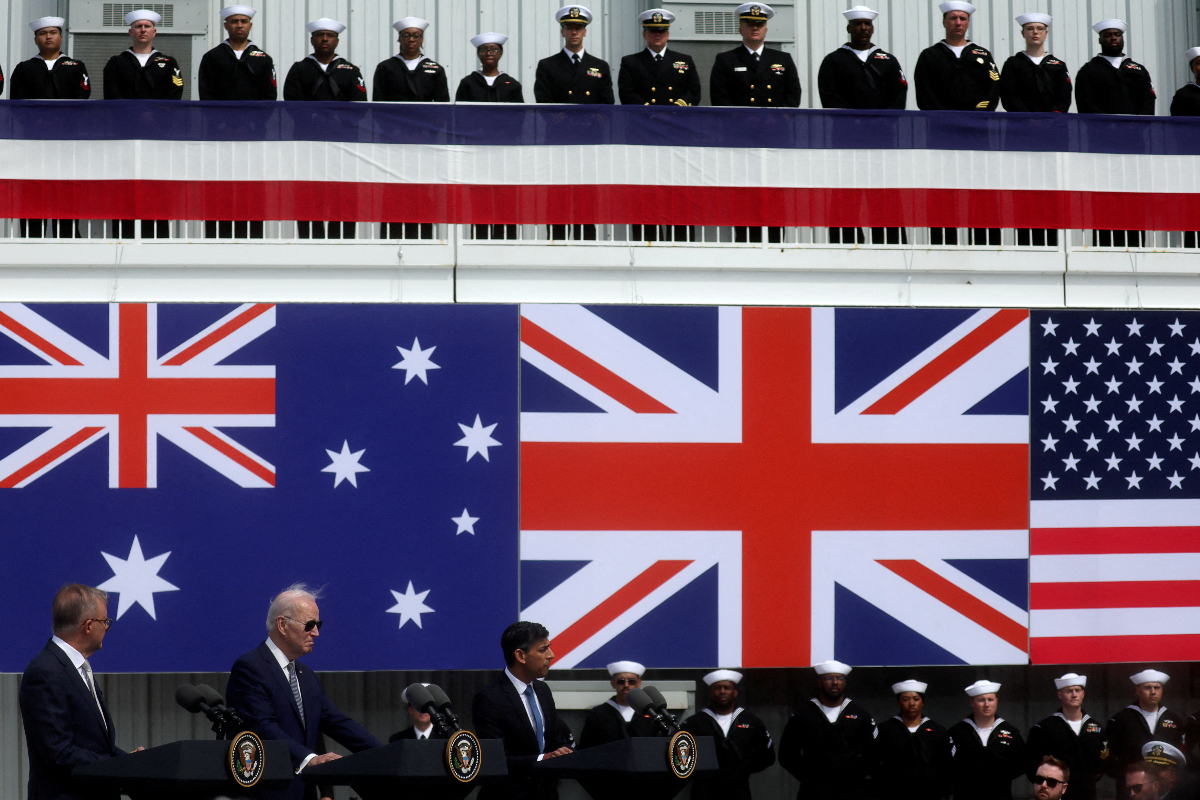- British Navy chief says AUKUS submarine project needs rat-catchers.
- Sir Ben Key joined Australia in raising concerns about the bureaucratic obstacles.
- The importance of having such “rat-catchers” in the forefront.
The head of the Royal Navy in the United Kingdom, Admiral Sir Ben Key, has joined Australia in raising concerns about the bureaucratic obstacles imposed by the United States on the AUKUS project, a trilateral effort to provide Australia with nuclear-powered submarines.
Admiral Key expressed that U.S. regulations should not be utilized to maintain a competitive advantage at a time when Western powers are confronting one of the most contested global environments in decades.
He stressed the need for careful consideration of the rules environment and its purpose, especially concerning International Traffic in Arms Regulations (ITAR), which govern U.S. technology transfer, a critical aspect of the AUKUS project.
He questioned whether these rules were enabling the broader goal of ensuring a robust security framework or primarily serving to prevent adversaries from accessing crucial technology.
Admiral Key cited the lessons from history, referencing a 1996 critique highlighted bureaucratic hindrances to effective British naval power between the Battle of Trafalgar in 1805 and the Battle of Jutland in 1916 to underscore his point.
The analysis in “The Rules of the Game” revealed that over time, rigid rules and regulations had become an impediment to military success.
He elaborated on the idea that during periods of prolonged peace, regulators tend to dominate the decision-making process, whereas, in times of war, individuals willing to bend rules in pursuit of the desired outcome take the lead.
Admiral Key stressed the importance of having such “rat-catchers” in the forefront, those willing to adapt and innovate, while the regulators should take a step back in today’s world of global uncertainty.
The Biden administration has expressed its intention to work with Congress to relax rules on technology sharing with Britain and Australia, but progress has been slow, largely due to resistance within the State Department.
Admiral Key’s comments follow those of Australia’s Washington ambassador, Kevin Rudd, who recently criticized the cumbersome U.S. bureaucracy for impeding the swift progress of the AUKUS initiative.
There is a sense of urgency among AUKUS members, who are concerned about the growing influence of China. Prime Minister Anthony Albanese’s visit to Washington, where AUKUS will be a key topic of discussion, is scheduled for next week.
To stay informed about current events, please like our Facebook page https://www.facebook.com/BOLUrduNews/.
Follow us on Twitter https://twitter.com/bolnewsurdu01 and stay updated with the latest news.
Subscribe to our YouTube channel https://bit.ly/3Tv8a3P to watch news from Pakistan and around the world.
[embedpost slug=”xi-jinping-opposes-bloc-confrontation-as-bri-meeting-begins/”]


















